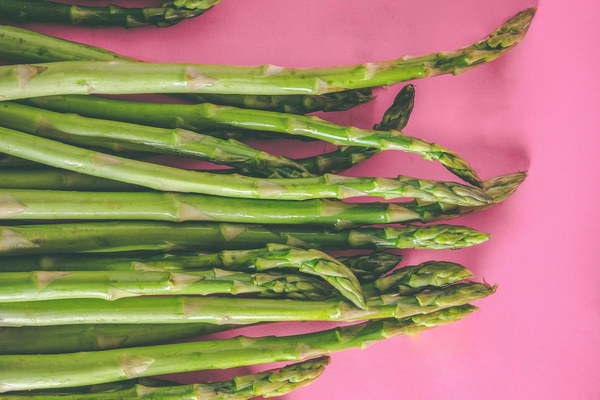Nourish Your Lungs Discover the Best Rice for Lung Health
In the quest for maintaining a healthy respiratory system, the food we consume plays a crucial role. While many are aware of the importance of fruits and vegetables, the right grains can also contribute significantly to lung health. One such grain that stands out for its lung-nourishing properties is rice. But not just any rice; we are talking about specific types of rice that are known for their ability to moisturize and nourish the lungs. Let's explore what these rice varieties are and how they can help in maintaining lung health.
Basmati Rice: The King of Lung-Nourishing Grains
Basmati rice, with its long, slender grains, is a favorite among rice lovers. But what makes this particular variety special for lung health is its low glycemic index and high water content. These characteristics make it an excellent choice for individuals with respiratory issues such as asthma or chronic obstructive pulmonary disease (COPD).
The low glycemic index of Basmati rice ensures that blood sugar levels remain stable, reducing the risk of inflammation. This, in turn, helps in minimizing the symptoms of lung conditions. Moreover, the high water content in Basmati rice helps in keeping the respiratory tract hydrated, which is essential for lung health.
Brown Rice: The Whole Grain Hero
Brown rice is another excellent choice for those looking to nourish their lungs. Unlike its processed counterpart, white rice, brown rice retains the bran and germ, which are rich in nutrients such as fiber, vitamins, and minerals. These nutrients play a crucial role in maintaining lung health.
The fiber content in brown rice is particularly beneficial, as it helps in reducing inflammation and improving the immune system. Additionally, the vitamin E and magnesium present in brown rice have anti-inflammatory properties, which can help in soothing the respiratory tract.

Jasmine Rice: A Fragrant Remedy for Dry Lungs
Jasmine rice is known for its fragrant aroma and delicate texture. This variety is a great option for those with dry lungs, as its high moisture content helps in keeping the respiratory tract hydrated. The aroma of Jasmine rice also has a calming effect on the mind, which can be beneficial for individuals dealing with stress and anxiety, both of which can exacerbate lung conditions.
Quinoa: The Protein-Packed Superfood
Quinoa is not a rice, but it is often grouped with rice due to its cooking methods and texture. This gluten-free grain is a powerhouse of nutrients, including protein, fiber, and essential amino acids. Quinoa is an excellent choice for those looking to nourish their lungs, as its protein content helps in building and repairing lung tissue.
The fiber in quinoa also aids in reducing inflammation, while the amino acids help in supporting the immune system. Moreover, the high magnesium content in quinoa has been linked to improved lung function.
Tips for Incorporating Lung-Nourishing Rice into Your Diet
1. Cook Rice Properly: To maximize the nutritional benefits of rice, cook it using a method that preserves its nutrients, such as boiling or steaming.
2. Combine with Other Nutritious Foods: Pair lung-nourishing rice with fruits, vegetables, and lean proteins to create a well-rounded meal that supports overall lung health.
3. Listen to Your Body: Pay attention to how your body responds to different types of rice. Some individuals may find certain varieties more beneficial than others.
4. Consult a Healthcare Professional: Before making significant changes to your diet, it is always a good idea to consult a healthcare professional, especially if you have existing lung conditions.
In conclusion, incorporating the right types of rice into your diet can significantly contribute to lung health. Basmati, brown, Jasmine, and quinoa rice are excellent choices, each offering unique benefits that help in moisturizing and nourishing the lungs. Remember to cook your rice properly, combine it with other nutritious foods, and consult with a healthcare professional to ensure the best results for your respiratory health.









